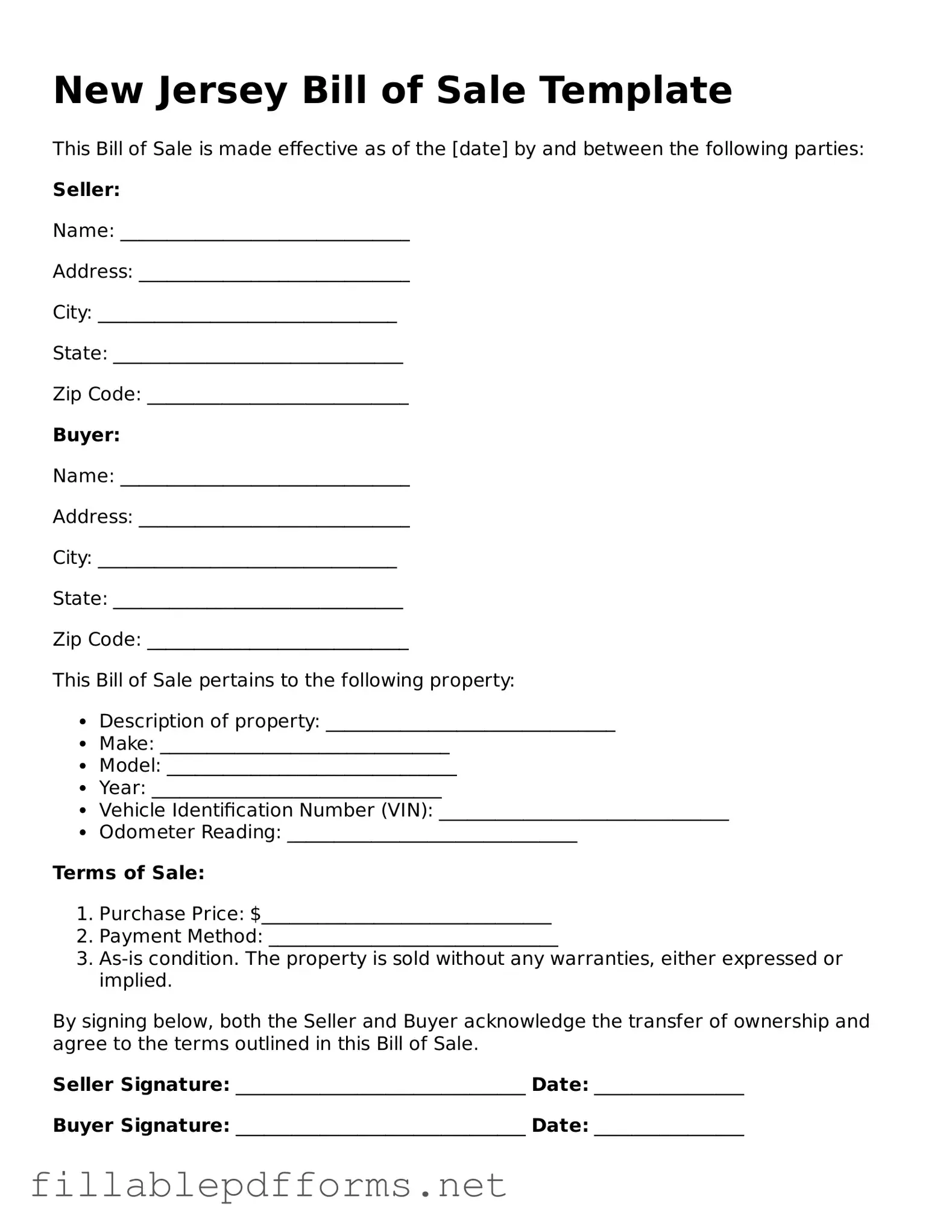Attorney-Verified Bill of Sale Form for New Jersey State
A Bill of Sale is a legal document that records the transfer of ownership of personal property from one party to another. In New Jersey, this form serves as proof of the transaction, detailing essential information about the buyer, seller, and the item being sold. Understanding how to properly use this form can help ensure a smooth transfer and protect both parties involved.
Launch Editor Here

Attorney-Verified Bill of Sale Form for New Jersey State
Launch Editor Here

Launch Editor Here
or
▼ Bill of Sale PDF
Almost there — finish the form
Complete Bill of Sale online fast — no printing, no scanning.